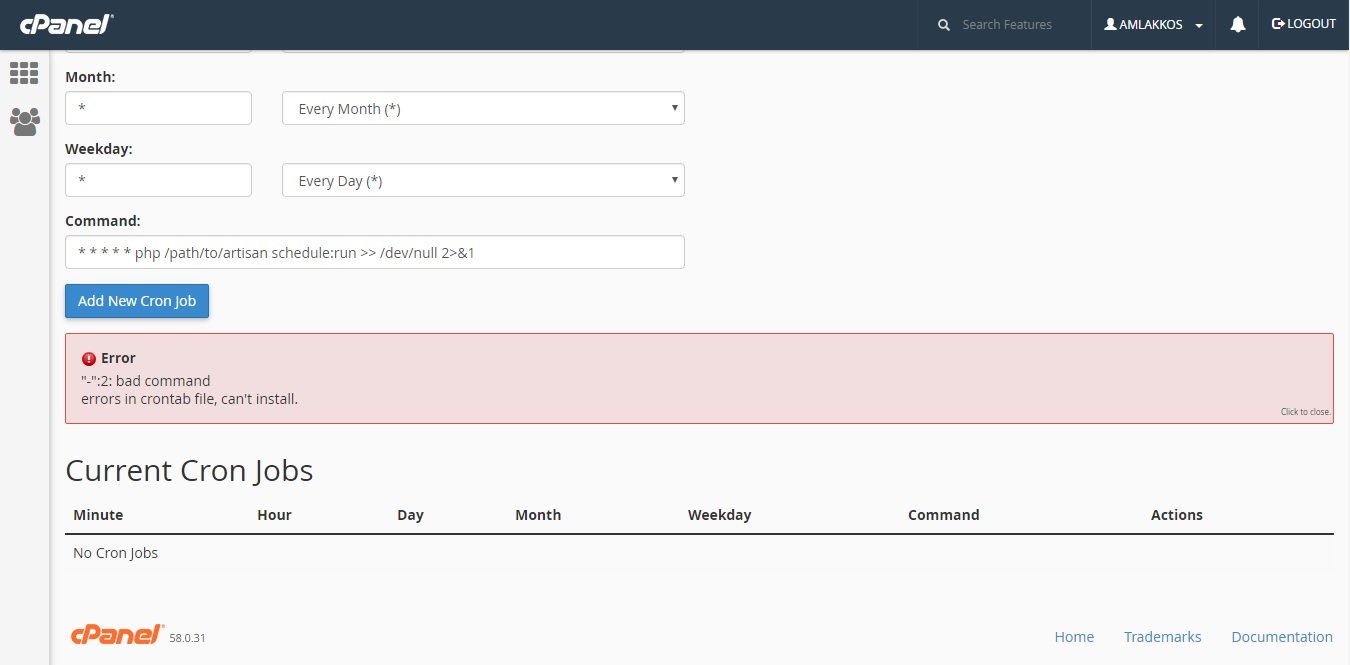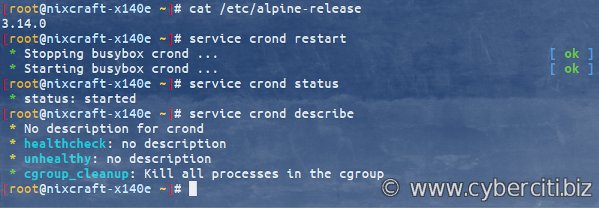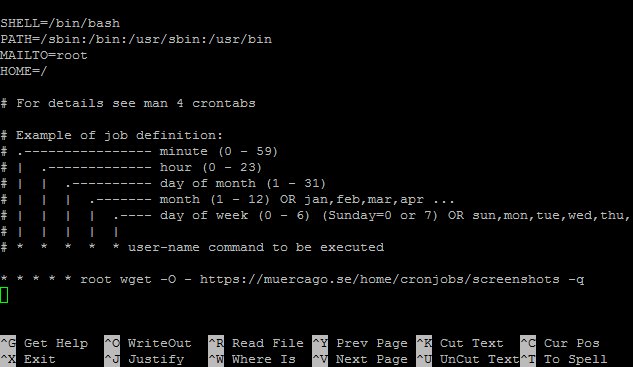Looking to automate repetitive tasks in your Django web application? Enter: Django cron job. This powerful feature allows you to schedule tasks to run at specific intervals, saving you time and effort. Whether it’s sending scheduled emails, cleaning up your database, or performing regular maintenance tasks, Django cron job has got you covered. In this blog article, we’ll dive into the ins and outs of Django cron job, exploring how it can simplify your workflow and improve the efficiency of your application. So let’s get started and harness the full potential of Django cron job!
Django Cron Job: Automating Tasks in Django
Django is a powerful web framework that allows developers to build robust and dynamic web applications. One of the key features of Django is its ability to automate tasks through cron jobs. In this article, we will explore the concept of cron jobs within the Django framework, how to set them up, and how they can be leveraged to streamline and enhance your web application.
Understanding Cron Jobs
Before diving into the specifics of Django cron jobs, it is important to have a solid understanding of what cron jobs are in general. Cron is a time-based job scheduler in Unix-like operating systems. It allows users to schedule recurring tasks to run automatically at fixed time intervals or specific times.
In the context of web development, cron jobs are commonly used to automate repetitive or scheduled tasks such as database backups, data processing, sending email notifications, generating reports, and much more. By automating these tasks, developers can save time, reduce manual effort, and ensure the timely execution of important processes.
Integrating Cron Jobs with Django
When it comes to integrating cron jobs with Django, there are multiple ways to achieve this. Let’s explore some of the popular methods:
1. Third-Party Libraries
Django provides a wide range of third-party libraries that simplify the process of integrating cron jobs into your Django project. Some popular libraries include:
- django-crontab: This library allows you to define cron jobs using the Django syntax within your project’s settings file. It provides an easy-to-use interface for scheduling tasks.
- django-chroniker: With this library, you can define periodic tasks via the Django admin interface. It offers additional features like task history, task locking, and management commands.
- django-background-tasks: This library enables you to schedule recurring tasks using a decorator-based approach. It runs tasks asynchronously using Django’s built-in database.
Using these libraries, you can define your cron jobs within your Django project, making it easier to manage and configure recurring tasks.
2. Django Management Commands
Another approach to integrating cron jobs into Django is by utilizing Django’s built-in management commands. Django management commands are custom commands that can be executed from the command line to perform specific tasks within your Django project.
To schedule a task as a cron job using a management command, you would typically follow these steps:
- Create a new management command by extending the
BaseCommandclass provided by Django. - Define the logic for the task within the
handle()method of your custom management command. - Add the necessary scheduling information (i.e., crontab syntax) to the
scheduleattribute of your management command. - Register the management command in your Django project’s
INSTALLED_APPSsetting.
Once your management command is set up, you can use the system’s built-in cron functionality to execute it at the specified intervals.
Scheduling Tasks with Cron Syntax
When scheduling cron jobs in Django, it is essential to understand the syntax used to define the time intervals or specific times at which the tasks should be executed. Cron syntax consists of five fields:
- Minute: The minute field represents the minute value (0-59) when the task should be executed.
- Hour: The hour field represents the hour value (0-23) when the task should be executed.
- Day of the Month: The day of the month field represents the day value (1-31) when the task should be executed.
- Month: The month field represents the month value (1-12) when the task should be executed.
- Day of the Week: The day of the week field represents the day of the week value (0-7, where both 0 and 7 represent Sunday) when the task should be executed.
Using these fields, you can create complex cron schedules to suit your specific requirements. Here are a few examples:
* * * * *: This represents a task that runs every minute.0 * * * *: This represents a task that runs every hour at the beginning of the hour.0 0 * * *: This represents a task that runs once a day at midnight.0 0 * * 0: This represents a task that runs every Sunday at midnight.
By combining the different fields using the appropriate syntax, you can create a wide range of scheduling options for your Django cron jobs.
Monitoring and Troubleshooting Cron Jobs
Once you have set up cron jobs in your Django project, it is crucial to monitor and troubleshoot them to ensure their smooth execution. Here are a few tips to help you with this process:
1. Logging
Logging is a powerful tool for tracking the execution of cron jobs and identifying any issues that may arise. By adding appropriate logging statements within your cron job tasks, you can capture important information such as error messages, task completion status, and relevant data.
Django provides a built-in logging framework that makes it easy to implement logging in your application. You can configure different log levels, output formats, and handlers to suit your needs.
2. Error Handling
It is essential to handle any errors or exceptions that may occur during the execution of your cron jobs. By implementing proper error handling mechanisms, you can prevent the failure of one task from affecting the execution of subsequent tasks.
In Django, you can use try-except blocks to catch and handle exceptions within your cron job code. Additionally, you can leverage Django’s error reporting tools, such as email notifications or integration with external monitoring services, to stay informed about any errors that occur.
3. Testing and Debugging
Before deploying your cron jobs to a production environment, it is important to thoroughly test and debug them to ensure their reliability. Django provides a comprehensive testing framework that allows you to write unit tests for your cron jobs, ensuring that they function as expected.
You can also use Django’s debugging tools, such as the built-in development server and the Django Debug Toolbar, to identify and resolve any issues during the development and testing stages.
Django cron jobs provide a powerful way to automate tasks within your web application. By leveraging the scheduling capabilities of cron, combined with the flexibility of Django, you can streamline and enhance your application’s functionality.
Whether you choose to use third-party libraries or Django’s built-in management commands, integrating cron jobs into your Django project is a straightforward process. Remember to schedule tasks using proper cron syntax and monitor them effectively using logging, error handling, testing, and debugging techniques.
By harnessing the power of cron jobs in Django, you can unlock new levels of efficiency and reliability in your web application development workflow.
Cron job Django | Django cron job tutorial | Django cron job example [ Cron Jobs ]
Frequently Asked Questions
What is a Django cron job?
A Django cron job is a scheduled task that runs at specified intervals in a Django web application. It allows you to automate repetitive tasks such as sending email notifications, updating database records, or performing any other action that needs to be executed at regular intervals.
How can I create a cron job in Django?
To create a cron job in Django, you can use a package like django-crontab. First, install the package using pip. Then, define the task you want to run as a function in one of your Django app files. Finally, register the task with django-crontab by adding it to the CRONJOBS setting in your Django project’s settings.py file.
Can I pass arguments to a Django cron job?
Yes, you can pass arguments to a Django cron job. You can define your task function to accept arguments and then pass those arguments when registering the task with django-crontab. For example, if your task function is named “my_task” and accepts an argument called “param”, you can register it as “my_task(param)” in the CRONJOBS setting.
How often can I schedule a Django cron job?
You can schedule a Django cron job to run at various intervals such as every minute, hour, day, week, or month. The scheduling options depend on the specific package you use for managing cron jobs in Django. With django-crontab, for example, you can define the schedule using a combination of numbers and asterisks in the CRONJOBS setting.
Can I see the output or logs of a Django cron job?
Yes, you can see the output or logs of a Django cron job. By default, the output of a cron job is sent to the email address of the user executing the task. You can also redirect the output to a file by modifying the command in the CRONJOBS setting. Additionally, you can use logging statements in your task function to log specific information or errors.
Final Thoughts
In summary, implementing a Django cron job is essential for automating repetitive tasks in your Django web application. By using the built-in Django management command and a third-party library like django-crontab, you can easily schedule and execute tasks at specific intervals. With the ability to run tasks in the background, such as sending emails, updating data, or performing system maintenance, a Django cron job simplifies the development process and improves overall efficiency. Incorporating a Django cron job ensures timely and accurate execution of essential tasks, making it a necessary feature for any Django project.




